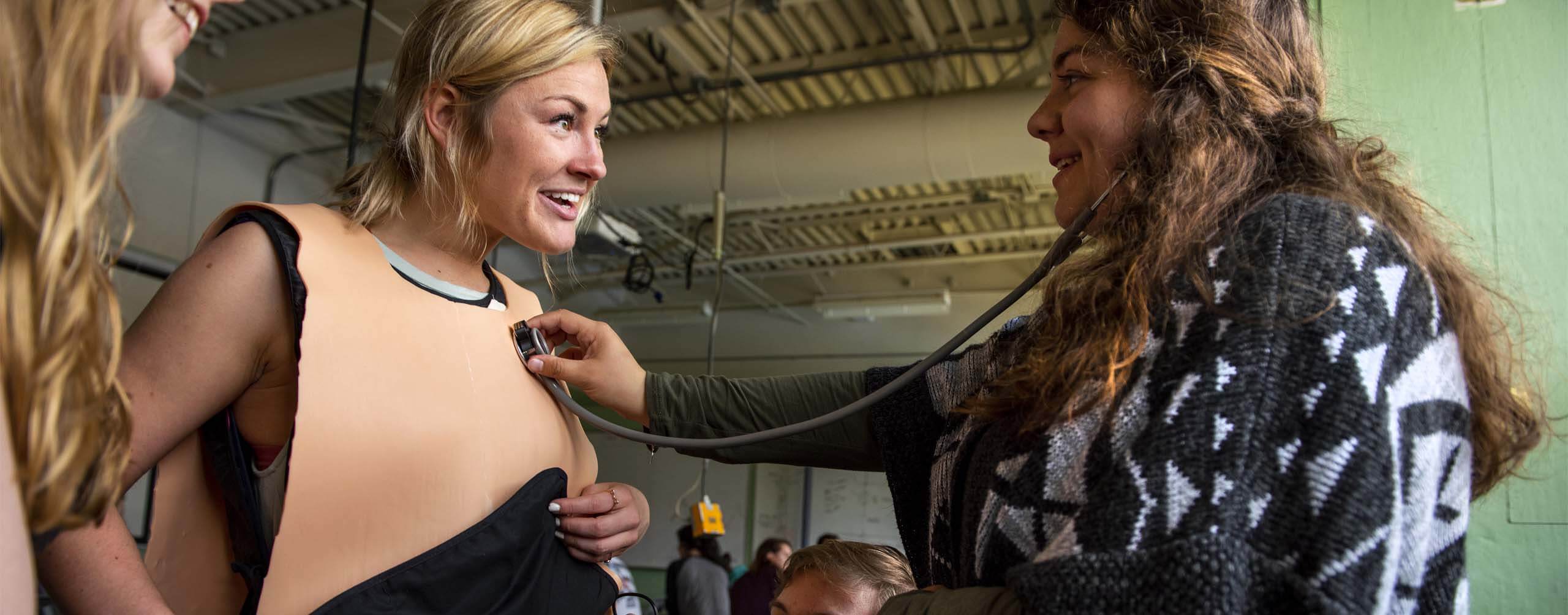
Biomedical Engineering
Maine College of Engineering and Computing
Biomedical engineering encompasses a broad range of topics, all of which focus on the interface between biology and engineering. The goal of the program is to prepare students for employment or graduate education in fields associated with clinical, therapeutic, and diagnostic applications of biomedical engineering.
The B.S. degree is suitable for entry-level engineering careers and as a preparation for graduate-level study in engineering or scientific disciplines. The degree also serves as an excellent foundation for admission to medical degree programs. For students who wish to pursue advanced postgraduate studies in this area, UMaine also offers a Master of Science degree in Biomedical Engineering, in addition to a Ph.D. in biomedical engineering through the Graduate School of Biomedical Science and Engineering.
Students entering UMaine’s biomedical engineering B.S. program typically have a strong interest in science and problem solving. The curriculum provides thorough training in the fundamentals of engineering, mathematics and science, combined with additional elective coursework in engineering, humanities, and social sciences. Employing this knowledge base, students develop the skills to engineer solutions to real-world problems.
Bioengineers use engineering skills to design devices or develop methods that interface with biological systems to benefit society. For example, bioengineers might be involved in the design of artificial organs, development of new methods to detect or treat cancer, production of devices to measure biological agents, or formulation of materials for the controlled release of drugs.
Students are given high quality undergraduate engineering instruction directed toward the instrumentation and techniques employed to analyze biological systems and processes, the challenges and methodologies associated with manipulating biological systems, and the current and future applications of biomedical engineering.
UMaine faculty members help students obtain summer internships in leading research and diagnostics development laboratories throughout New England. Internships with these companies and research institutions typically take place in the junior and senior years of the program.
Students are encouraged to undertake undergraduate research experiences in the laboratories of the department faculty. UMaine biomedical engineering professors are all highly active and accomplished researchers. Research projects have included the development of nanoprobes for detection and imaging of cancer; creation of model cellular membranes for the study of membrane-protein interactions, molecular biosensors for detecting pathogens and toxins, and improving tissue-implant compatibility. Undergraduates are encouraged to participate in projects such as these to gain hands-on experience in the field, either for course credit, or as paid employees.
Biomedical Engineering
Maine College of Engineering and Computing
Jenness Hall, Room 117
207.581.2277
